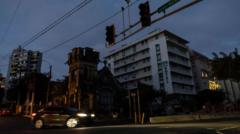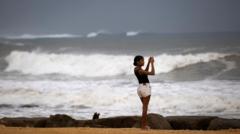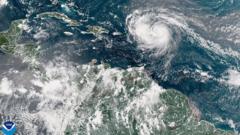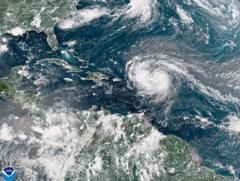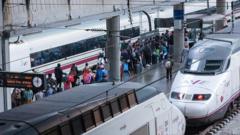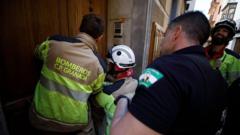In a sudden turn of events, Puerto Rico experienced a nearly island-wide blackout on New Year's Eve, leaving over 1.2 million of its 1.5 million customers without power, according to Luma Energy, the main power distributor. The cause of this significant outage is currently under investigation, and estimates suggest that full service restoration could take between 24 to 48 hours. Residents across the island were left in the dark, with traffic lights malfunctioning and numerous buildings without electricity as they prepared for the New Year.
This latest blackout has reignited discussions regarding Puerto Rico's persistent energy issues, which have plagued the territory since Hurricane Maria struck in 2017. Some areas did see power restored by Tuesday afternoon, specifically San Juan’s municipal hospital, as Luma Energy worked to address the crisis. Jenniffer González-Colon, Puerto Rico's current US congressional representative and incoming governor, emphasized the need for a reliable energy system, highlighting the frequent failures that have adversely impacted citizens’ lives. On social media, the current governor, Pedro Pierluisi, demanded accountability from Luma and Genera, Puerto Rico's two primary power companies.
This year alone has seen hundreds of thousands of residents affected by outages, including a significant incident in June that left around 350,000 customers without power as temperatures soared. A subsequent outage in August, following Hurricane Ernesto, impacted over 700,000 customers. The ongoing frustrations felt by Puerto Ricans were echoed by local resident Enid Núñez, who described the outages as an inescapable part of daily life.
Puerto Rico's power grid was already in a fragile state before Hurricane Maria, and while US government funding was allocated to bolster the grid and facilitate recovery from various natural disasters, progress has been hindered by several challenges, including construction delays and federal approvals, as noted in a report by the US Government Accountability Office in February 2024. Mark Levine, Manhattan's borough president, voiced the need for better support, stating that the Puerto Rican population in the mainland US is owed much more as U.S. citizens.

